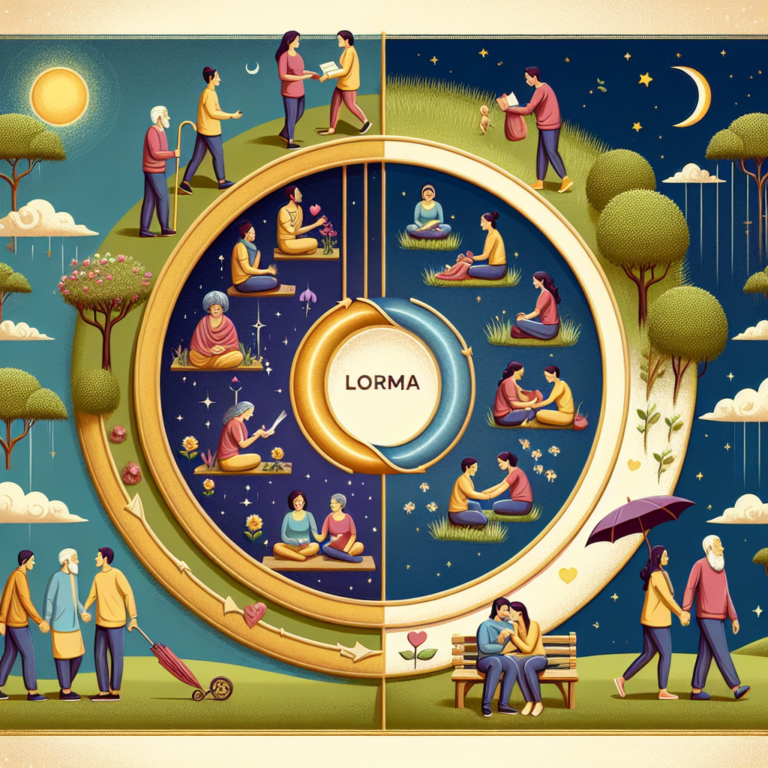Karma Unveiled: How Ancient Beliefs Shape Our Lives Today
Karma is a term that has transcended its origins in Eastern religious and philosophical traditions to become a part of the global lexicon. Often simplified to mean “what goes around comes around,” this ancient concept encapsulates a complex interaction between actions, intentions, and the consequences they bear. This article will explore the multifaceted nature of karma, its origins in ancient belief systems, its evolution into modern contexts, and how it continues to shape our lives today.
Understanding Karma: Origins and Philosophy
The word "karma" comes from the Sanskrit term meaning "action" or "deed." It is a central tenet in several Eastern religions, notably Hinduism and Buddhism. In these traditions, karma is not merely about immediate actions and consequences but involves a broader, interconnected web of ethical conduct that spans past, present, and future lives.
In Hindu philosophy, karma is intricately linked with the concept of reincarnation. Each action—good or bad—affects not only the present life but also the soul’s journey in subsequent lives. Thus, leading a life of virtue is essential for attaining a favorable rebirth. Similarly, Buddhism interprets karma as the law of moral causation, emphasizing that our intentions behind actions play a critical role in determining their karmic outcomes.
The Evolution of Karma in Contemporary Society
As globalization and cross-cultural exchanges have taken root, the ideas surrounding karma have evolved. The interpretation of karma has broadened, often stripped of its spiritual and religious connotations. Today, many see it as a universal principle governing human interactions and relationships.
In popular culture, karma is frequently depicted through aphorisms, social media memes, and self-help literature, focusing on personal well-being and emotional intelligence. The idea that one’s good deeds will yield positive consequences encourages individuals to act more ethically, fostering narratives of fairness and justice. This secular interpretation appeals to a wide audience, resonating with individuals’ desires for meaning and accountability.
Karma in Daily Life: Practical Applications
In the modern world, the application of karma can be seen in various contexts, influencing personal relationships, professional environments, and societal behaviors.
Personal Relationships: The belief in karma encourages empathy and compassion in interpersonal dynamics. Understanding that our actions affect others can promote more harmonious connections. People often find comfort in the notion that kindness will eventually be reciprocated, which can create a feedback loop of positive interactions.
Workplace Ethics: Many businesses integrate principles of karma into their corporate social responsibility (CSR) efforts. Companies that act ethically and contribute positively to society tend to build stronger reputations and customer loyalty. Employees are increasingly valuing organizations that prioritize ethical practices, often seeing their career satisfaction tied to the company’s moral compass.
- Mental Health: The understanding of karma can also extend to personal mental health and well-being. Reflecting on one’s actions and their implications can lead to a greater sense of mindfulness and responsibility. For many, this journey of self-reflection enhances emotional resilience and fosters a positive outlook, reinforcing the idea that internal actions can lead to external rewards.
Modern Interpretations: Scientific Perspectives on Karma
As the concept of karma continues to evolve, it has found a niche within the realms of psychology and social science. Research in behavioral psychology suggests that the belief in karma may actually influence human behavior positively. Studies indicate that when individuals believe their actions have consequences, they are more inclined to engage in altruistic behavior and contribute to their communities.
Furthermore, the concept of “social karma” surfaces in discussions about social networks and community interactions. People who consistently contribute to the well-being of their communities often find themselves supported by those around them, reinforcing the cycles of generosity and reciprocity.
Critiques and Misinterpretations of Karma
Despite its positive implications, the concept of karma is not without critiques. One major criticism is the oversimplification of its implications. Many mistakenly equate karma solely with retribution, believing that bad actions will inevitably result in misfortune. This deterministic view can foster victim-blaming attitudes, where people are judged for their circumstances without acknowledging the complexities of life and the multitude of factors that influence one’s situation.
Moreover, in a fast-paced, often chaotic world, the idea that our actions will always yield immediate or visible results may lead to disillusionment. The spiritual aspects of karma remind us that the outcomes of our actions are not always immediate, and this can challenge our understanding of justice and fairness.
Conclusion: Embracing the Lessons of Karma
Karma provides a compelling framework for understanding the intricate relationships between actions and their consequences. As we navigate the challenges of modern life, the lessons derived from ancient beliefs about karma can serve as invaluable guides. They encourage us to foster compassion, cultivate mindfulness, and strive for social good.
In today’s increasingly interconnected world, remembering the principles of karma can inspire us to act with integrity, empathy, and awareness of the long-term impact of our choices. As we unravel the beliefs of the past, we find an enduring wisdom that continues to resonate profoundly in our lives today.
FAQs About Karma
Q: What is karma?
A: Karma is a concept originating in Eastern religions that signifies the principle of cause and effect regarding a person’s actions and their moral consequences. It encompasses both the intention behind actions and the outcomes they produce.
Q: Does karma apply to this life only?
A: Traditional interpretations often view karma across multiple lifetimes, suggesting that actions in previous lives can impact current experiences. However, modern interpretations frequently apply karma to the present moment and relationships.
Q: Can karma be changed or altered?
A: Many believe that one can influence their karma by making conscious, positive choices in the present. Engaging in altruism, compassion, and integrity can contribute to more favorable outcomes.
Q: Is karma a form of justice?
A: Karma can be perceived as a universal form of justice, promoting moral accountability. However, it’s essential to recognize that its approach to justice is often complex and may not align with human perceptions of fairness.
Q: How can I apply the concept of karma in my daily life?
A: You can apply the concept of karma by being mindful of your actions and their potential impact on others. Practicing kindness, empathy, and ethical behavior not only benefits others but can also lead to a more fulfilling and enriched personal life.
It looks like you might be looking for a prompt for a writing task or something else. Could you please provide more details or specify the type of prompt you need? For example, are you looking for a creative writing prompt, a discussion topic, or something related to a specific theme or subject?, #Karma #Unveiled #Ancient #Beliefs #Shape #Lives #Today, #Karma #Unveiled #Ancient #Beliefs #Shape #Lives #Today, 1736423884, karma-unveiled-how-ancient-beliefs-shape-our-lives-today





